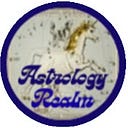The Full Moon’s Pull: Unraveling the Connection Between Emotions and Lunar Phases
This article may include affiliate links, which means that if you click on one and decide to purchase something, I may receive a commission at no extra cost to you.
(Human directed ai content.)
The full moon, with its radiant and luminous presence in the night sky, has long been associated with mystical beliefs and fascinating legends. Among the various lunar myths, one prevalent idea is that people tend to become more emotional during a full moon.
While scientific evidence remains inconclusive, the anecdotal experiences and cultural beliefs around this phenomenon have sparked curiosity and discussions for generations. In this article, we delve into the possible reasons why some people believe they are more emotional during a full moon.
1. Lunar Mythology and Folklore:
Throughout history, cultures around the world have woven stories and beliefs around the full moon’s influence on human behavior. Many myths portray the full moon as a time of heightened emotions, magical happenings, and transformative energies.
2. Biological and Evolutionary Factors:
Some researchers suggest that the association between emotions and lunar phases may have roots in human evolution. Historically, the full moon’s brightness provided additional illumination during the nighttime, potentially affecting sleep patterns and circadian rhythms. As a result, disrupted sleep could lead to mood changes and emotional fluctuations.
3. The Power of Suggestion:
Psychologists recognize the power of suggestion and the impact of cultural beliefs on individual behavior. If someone believes that they are more emotional during a full moon, they may subconsciously amplify their emotions or attribute emotional experiences to the lunar cycle.
4. Environmental Factors:
The full moon’s brightness can alter the nighttime environment, affecting light exposure and possibly influencing mood-regulating neurotransmitters, such as serotonin and melatonin. However, the actual impact on emotions is complex and may vary from person to person.
5. Confirmation Bias:
Confirmation bias, a cognitive phenomenon, can influence how people perceive and interpret events. When someone expects to feel more emotional during a full moon, they may be more attentive to emotional experiences during that time, further reinforcing their belief in the lunar effect.
6. Cultural and Social Influences:
The belief in the full moon’s influence on emotions is deeply ingrained in various cultures and is often perpetuated through folklore, literature, and media. This cultural reinforcement can shape people’s perceptions and experiences during full moons.
7. Astrological Beliefs:
In astrology, the moon is associated with emotions, intuition, and the subconscious mind. Some individuals who follow astrological beliefs may attribute emotional fluctuations to the moon’s position and phases.
Conclusion:
The belief that people become more emotional during a full moon is a complex and intriguing phenomenon deeply rooted in human history, culture, and psychology. While scientific evidence does not definitively support this notion, the anecdotal experiences and cultural beliefs surrounding the full moon’s influence on emotions continue to captivate our imagination.
Ultimately, the connection between emotions and lunar phases remains a subject of fascination and wonder. Whether people experience emotional changes during a full moon due to biological, psychological, cultural, or astrological factors, the full moon’s luminous presence in the night sky continues to inspire awe and contemplation.
As we gaze upon the full moon, let us embrace the mystery and beauty of the cosmos, appreciating the myriad ways in which celestial events intertwine with human experiences and the intricate dance of emotions within us all.
Read More…
Unlocking the Mysteries of Zodiac Signs, Horoscope, and Astrology
LEGAL INFORMATION
Any links in this article, may be affiliate links. Using my links is free at no extra cost to you, and helps to support my channel. Information in
the articles is not business or investment advice, and these articles are created primarily for entertainment purpose. Thank you for your support!
